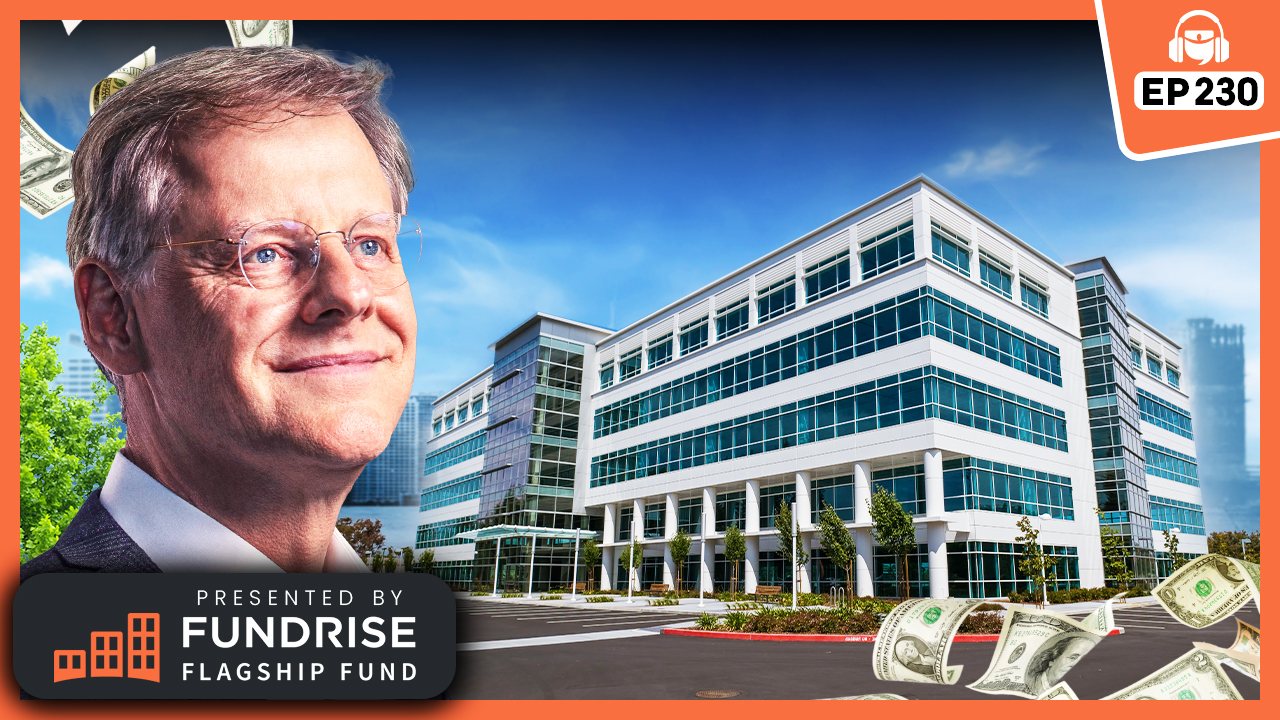In this article
Remember the container ship that got wedged in the Suez Canal in March 2021? Within days, hundreds of ships halted. In less than a week, 12% of global trade halted.
This is merely one simple example of volatility. A tiny event in some remote corner of the world made life perilous and unpredictable for a billion people. The shockwave reverberated across the Earth.
There are many more examples like this. COVID-19 spawns in Wuhan, China, and creates a once-in-a-100-year worldwide pandemic. Or more theoretically, one butterfly flapping its wings spawns a hurricane on the opposite side of the globe.
Volatility Is The New Normal
Interest rate hikes these past 18 months may not look like volatility. Rates consistently rose. But if you look at a graph of interest rates over decades, it looks more like volatility. Many syndicators and investors were lulled to sleep by historically low rates for a long time.
You can’t avoid volatility. But you can avoid many of its consequences. How? There are three things to keep in mind:
Broad diversification
Rigorous due diligence
Long holding periods
No one we know of has done this better than Warren Buffett. And that’s why he’s one of our investment role models.
Here’s a look at each of these concepts.
Broad Diversification
Berkshire Hathaway is broadly diversified across various asset types, geographies, operators, and strategies. And the company has positions in multiple locations in the capital stack.
If you’re a passive real estate investor, we believe you should consider diversifying across various asset types, geographies, operators, and strategies—and even consider various positions in the capital stack.
My fund has been putting our advice into practice. Here is a picture of our current asset mix:

And here’s a picture of where our funds are invested within the capital stack:

Diversification should protect investors from the volatility many investors experience. Investing across this wide array of factors will likely dampen the highest highs from one investment but also dampen the potential losses of a bad one.
I recommend you take that trade all day long.
Rigorous Due Diligence
Buffett does a masterful job of choosing companies to acquire and invest in.
It looks like magic. But it’s not. Buffett stays focused on a handful of critical criteria. He sometimes refers to these simple criteria as jumping one-foot hurdles.
Buffett is a master at eliminating emotion from his buying and selling decisions, always looking for assets that can be acquired for less than their intrinsic value. This typically creates a wide margin of safety between his investment and the true value of the asset.
My fund tries to follow Buffett in this path, and we encourage you to do the same. We use a 28-point due diligence checklist to help us in this process. And some of these points have many subpoints.
For example, our underwriting analysis includes a third-party NOI audit. And our background checks sometimes include checks on other parties to the deal. A recent check found a lender (not the operator) whose CEO spent time in jail for multiple fraud charges. That’s not OK with us.
Clear value investing criteria and unrelenting focus on our standards have resulted in us saying no to a very large percentage of the deals we review. Here’s a snapshot from a recent six-month period.

The best investors I know are excellent at saying “no.” We recommend you do the same. Buffett said: “The best investors say no a lot. The very best investors say no almost all the time.”
Long Holding Periods
Buffett is big on this one. He once said: “Our ideal holding time is forever.”
At 93 and 99, Buffett and the late, great Charlie Munger (rest in peace) have made investments that will profit their investors long after they hang up their slide rules.
Why are long-term holds so beneficial to investors like Buffett—and you?
Long-term holds avoid the pressure to sell at unfavorable points in the cycle.
Long-term holds tend to be paired with long-term, fixed-rate debt, which is not at risk when interest rate hikes devastate short-term, variable-rate borrowers.
Long-term holds can harness inflation to provide higher cash flow and appreciation.
Long-term holds can often kick the can down the road to avoid friction costs and capital gains taxes.
Long-term holders have captured many of the benefits on this list. And they have avoided many of the pitfalls some syndicators, and their investors are experiencing now.
Noncorrelation to Wall Street
You’ll notice this feature was not one on my original list of how Buffett avoids the effects of volatility. When Buffett chose to operate a public company, he gave up this benefit. But I’ll argue that his long-term focus and lack of care about share prices (Berkshire’s or those of their holdings) is an offsetting factor.
This is one thing I love about private real estate. We are not beholden to the mood on Wall Street, a war in the Middle East, a CEO scandal, or a random tweet.
As a real estate investor, your cash flow and appreciation are not independent of external factors, but your real estate values don’t rise and fall daily or monthly based on stock market sentiment.
Can you avoid volatility entirely? No way. But you can avoid many of its deadly side effects through diversification, due diligence, long hold periods, and noncorrelation.
Note: Thanks to my friend, Perry Marshall, author of 80/20 Sales and Marketing, for his observations on world events, volatility, and butterfly wings.
Ready to succeed in real estate investing? Create a free BiggerPockets account to learn about investment strategies; ask questions and get answers from our community of +2 million members; connect with investor-friendly agents; and so much more.
Mr. Moore is a partner of Wellings Capital Management, LLC, the investment advisor of the Wellings Real Estate Income Fund (WREIF), which is available to accredited investors. Investors should consider the investment objectives, risks, charges, and expenses before investing. For a Private Placement Memorandum (“PPM”) with this and other information about the Wellings Real Estate Income Fund, please call 800-844-2188 or email [email protected]. Read the PPM carefully before investing. Past performance is no guarantee of future results. The information contained in this communication is for information purposes, does not constitute a recommendation, and should not be regarded as an offer to sell or a solicitation of an offer to buy any security in any jurisdiction where such an offer or solicitation would be in violation of any local laws. All investing involves the risk of loss, including a loss of principal. We do not provide tax, accounting, or legal advice, and all investors are advised to consult with their tax, accounting, or legal advisors before investing.
Note By BiggerPockets: These are opinions written by the author and do not necessarily represent the opinions of BiggerPockets.

























